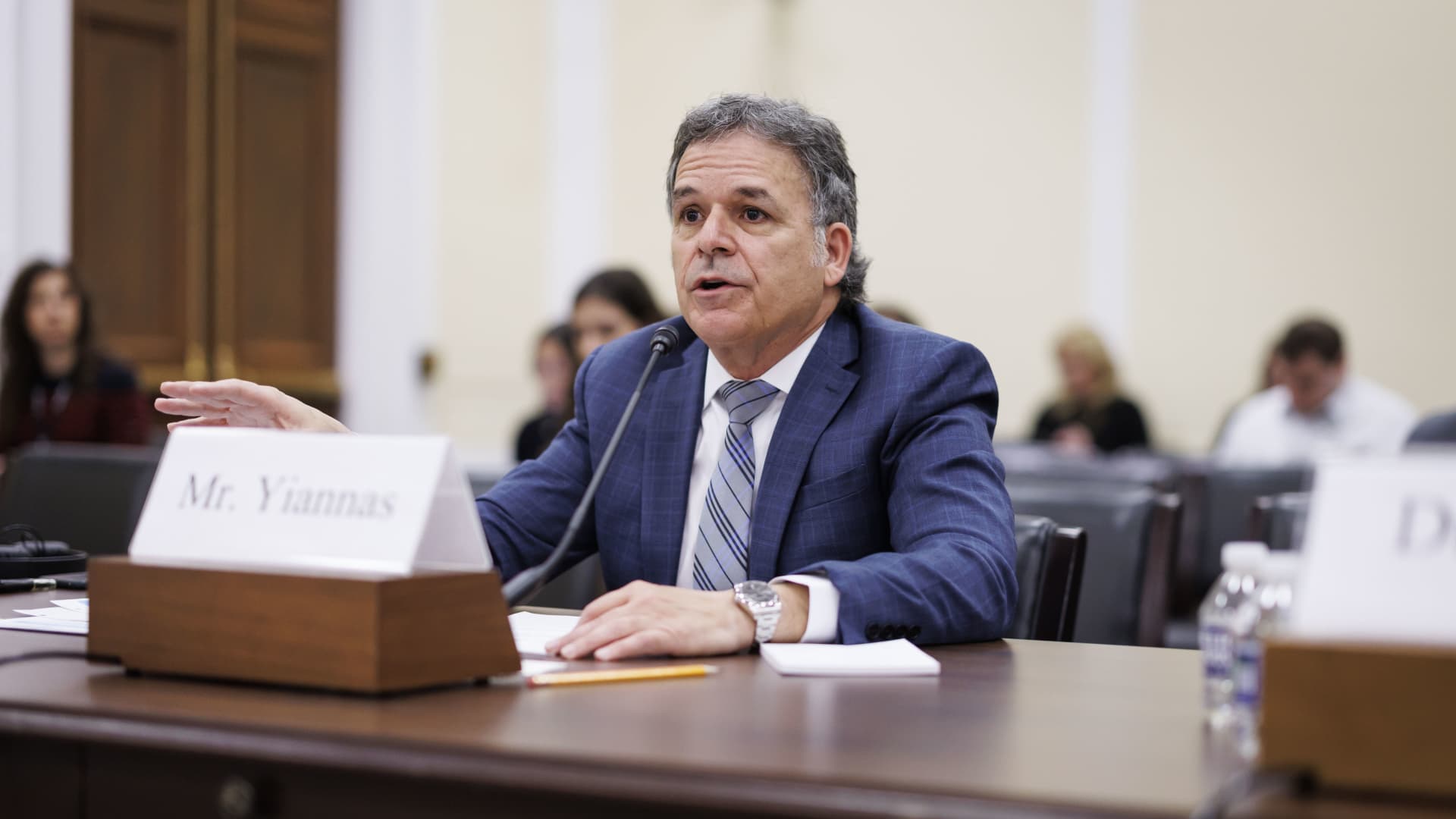The U.S. supply of infant formula industry is still vulnerable to safety issues and supply disruptions more than a year after a nationwide shortage that left parents scrambling to feed their children, a former Food and Drug Administration official told U.S. lawmakers on Tuesday.
“It is my view that the state of the infant formula industry today is not much different than it was then,” Frank Yiannas, the agency’s former deputy commissioner for food policy, said during testimony before a subcommittee of the House Oversight Committee. Yiannas helped lead the FDA’s response to the shortage before resigning earlier this year.
“In other words, the nation remains one outbreak, tornado, flood or cyberattack away from finding itself in a similar place to that of February 17, 2022,” he added.
The FDA announced a nationwide recall on that day of Abbott Nutrition‘s popular Similac, Alimentum and EleCare baby formulas that sparked the nationwide shortage. The infant formula was recalled after several infants became sick with bacterial infections and two died.
He said the agency was slow to act when those concerns about contamination arose at Abbott’s formula manufacturing plant in Sturgis, Michigan. The plant was shuttered for months, sharply reducing formula supply across the U.S. Prior to the recall, Abbott controlled an estimated 40% of the nation’s baby formula market.
Yiannas underscored dysfunction within the FDA that he believes exacerbated the shortage. He pointed to structural and cultural issues within the agency, a failure to monitor the food supply chain and inadequate public health surveillance of the fatal bacteria, Cronobacter sakazakii, that contaminated Abbott’s formula.
But he also highlighted ongoing threats to infant formula supply that need to be addressed to prevent a similar crisis in the future, such as manufacturing plants in need of refurbishment and heavy consolidation in the industry.
‘Communications silos’
The FDA first received a whistleblower complaint about the contamination at Abbott’s formula plant on Oct. 26, 2021, he said. But Yiannas said he only became aware of the complaint four months later on Feb. 10, 2022, which prompted him and his team to take action to mitigate the shortage at the time.
Yiannas said the FDA previously blamed “mail issues” for the delay, but noted that multiple agency officials received both hard and electronic copies of the complaint.
He instead pointed to decentralized offices and centers at the agency that were slow to pass along the critical information, he noted.
“I wish that the communications silos had not existed and that I would have been notified earlier, so I could have initiated these steps sooner,” Yiannas said during the hearing. “I also believe that had we been able to initiate these steps and act sooner, the recall may have been smaller in size.”
New FDA strategy
Yiannas’ remarks came after the FDA unveiled a new national strategy to ensure the safe and adequate supply of baby formula. The agency developed the strategy under the Food and Drug Omnibus Reform Act of 2022.
The strategy includes enhancing inspections of infant formula manufacturers, pushing the industry to develop and implement risk-management plans and expediting the review of new infant formulas to prevent future shortages.
When asked about the FDA’s new plan during the hearing, Yiannas called it “well intentioned.” But he noted it’s been referred to as a vision and strategy, which is “very different” than a reorganization of the agency’s structure.
“You need a strategy first, and you need a structure to support that strategy,” he said. Yiannas added the proposal doesn’t go as far as the actions under previous FDA deputy commissioners.
Since the recalls, both Abbott and the FDA — as well as the broader infant formula industry — have been under high scrutiny.
The company in January said the Department of Justice was investigating conduct at its Michigan infant formula plant. Last May, the Federal Trade Commission launched an investigation into whether mergers in the baby formula industry contributed to the current shortage. Several congressional oversight hearings also have grilled key officials that lawmakers believe could have done more to prevent the shortage, such as FDA Commissioner Dr. Robert Califf.
The Biden administration has taken steps to ease the shortage. The president in May invoked the Defense Production Act to increase formula manufacturing. The White House also announced last year the U.S. would airlift bottles of infant formula from abroad.
